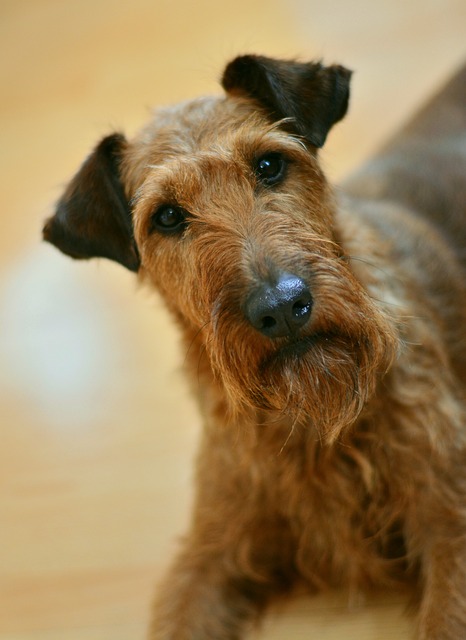


The Irish Terrier is a small to medium-sized dog breed known for its loyalty, courage, and energetic personality. With a distinctive wiry coat and bright, intelligent eyes, they are often described as having a "big dog" mentality in a small package. Despite their compact size, Irish Terriers are bold, alert, and protective, making them excellent companions for active families or individuals. They are one of the oldest terrier breeds and are known for their versatility as both family pets and working dogs.
The Irish Terrier is one of the oldest terrier breeds, with a history dating back to the 19th century in Ireland. Originally bred to hunt and protect farms, these dogs were skilled in catching small game like rats, rabbits, and foxes. They were also used as messenger dogs during wartime, thanks to their intelligence and agility. The breed's name is derived from its country of origin, and Irish Terriers were particularly popular in Ireland as farm dogs. Over time, they became beloved family pets, admired for their temperament and protective instincts. Today, the Irish Terrier remains a cherished companion and a rare, distinctive breed.
The Irish Terrier is a sturdy, compact dog with a wiry, red coat that is typically around 1 to 2 inches long. The coat may have some variations in color, ranging from a bright red to a more subdued wheaten or golden hue. The breed's face is characterized by a long, straight muzzle, expressive dark eyes, and a beard and eyebrows that give them a slightly "fox-like" appearance. Their ears are small, V-shaped, and fold forward, giving them an alert and curious look. Standing between 18 to 20 inches tall at the shoulder, Irish Terriers typically weigh between 25 to 27 pounds. They have a muscular body and a confident, energetic stance, giving them a distinct appearance among terrier breeds.
The Irish Terrier is known for its bold, energetic, and friendly personality. These dogs are highly social and enjoy being part of the family, often forming strong bonds with their human companions. While they are generally good with children and other pets, they do have a strong prey drive, which means they may not be the best choice for homes with smaller animals like rabbits or hamsters. They can also be somewhat independent, as many terriers are, and they have a strong desire to explore their environment. However, they are also affectionate and tend to be very loyal to their families, often seeking out attention and affection from their owners.
Irish Terriers are highly energetic dogs that require regular physical and mental stimulation. They thrive in active households and enjoy engaging in outdoor activities such as walking, hiking, and playing fetch. A few brisk walks a day, along with some time spent in a securely fenced yard, are usually sufficient to meet their exercise needs. Due to their terrier nature, they are also intelligent and love to engage in problem-solving activities or games that challenge their minds. Without adequate exercise and stimulation, Irish Terriers can become bored and may engage in undesirable behaviors like digging or excessive barking.
Irish Terriers are intelligent and eager to please, but they can also be independent and stubborn, making training a bit of a challenge at times. Early socialization is important to help them become well-adjusted around other animals, people, and different environments. Positive reinforcement methods, such as treats and praise, work best with this breed, as they respond well to consistent and reward-based training. While they can be trained to follow commands, their strong-willed nature means that they may require a patient and firm handler. With proper training, Irish Terriers can be well-mannered and obedient companions.
The Irish Terrier is generally a healthy breed with a lifespan of 12 to 15 years. However, like all breeds, they can be prone to certain health issues. Common concerns for this breed include hip dysplasia, hypothyroidism, and certain skin conditions. Regular veterinary check-ups and vaccinations are important to ensure that your Irish Terrier remains healthy throughout their life. Their wiry coat requires regular grooming, typically every 6 to 8 weeks, to maintain its texture and prevent matting. Brushing their coat once or twice a week can help keep it in good condition. In addition to coat care, regular dental care and nail trimming are also important to their overall health.
The typical lifespan of an Irish Terrier is between 12 and 15 years. With proper care, including a balanced diet, regular exercise, and routine veterinary visits, they can live a long, healthy life. Keeping an Irish Terrier mentally stimulated and physically active will also contribute to their longevity, as this breed tends to thrive when engaged and involved in family activities.
© copyright Dog Compendium 2024 - 2026